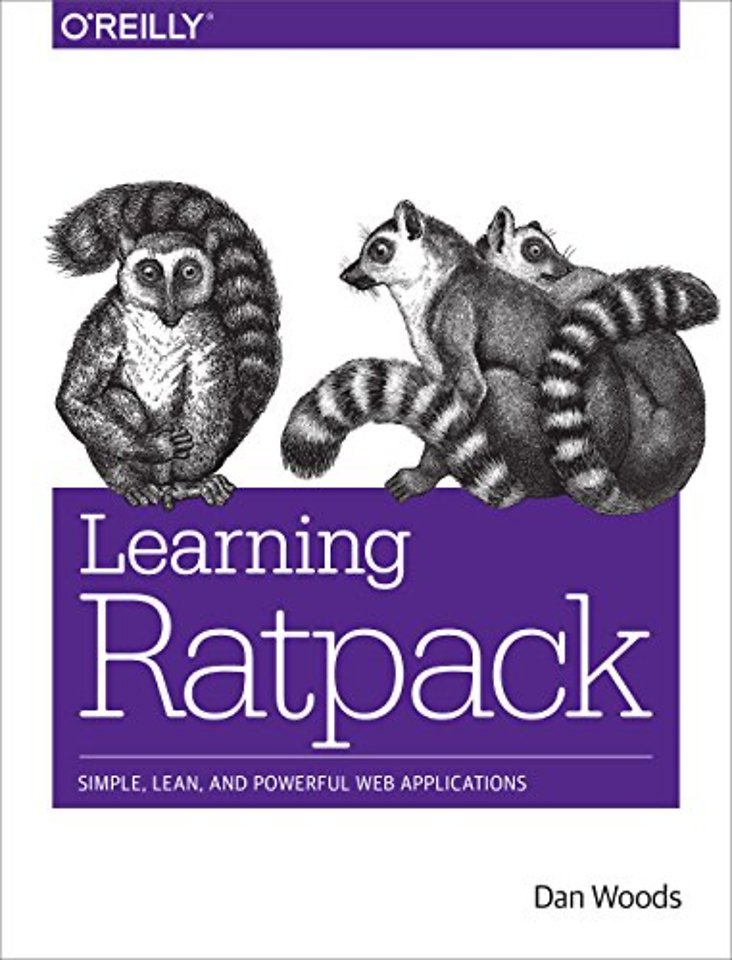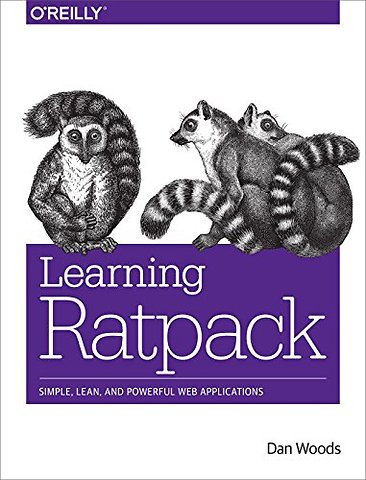Learning Ratpack
Simple, Lean, and Powerful Web Applications
Samenvatting
Build robust, highly scalable reactive web applications with Ratpack, the lightweight JVM framework. With this practical guide, you’ll discover how asynchronous applications differ from more traditional thread-per-request systems—and how you can reap the benefits of complex non-blocking through an API that makes the effort easy to understand and adopt.
Author Dan Woods—a member of the Ratpack core team—provides a progressively in-depth tour of Ratpack and its capabilities, from basic concepts to tools and strategies to help you construct fast, test-driven applications in a semantic and expressive way. Ideal for Java web developers familiar with Grails or Spring, this book is applicable to all versions of Ratpack 1.x.
- Configure your applications and servers to accommodate the cloud
- Use Ratpack testing structures on both new and legacy applications
- Add advanced capabilities, such as component binding, with modules
- Explore Ratpack’s static content generation and serving mechanisms
- Provide a guaranteed execution order to asynchronous processing
- Model data and the data access layer to build high-performance, data-driven applications
- Work with reactive and functional programming strategies
- Use distribution techniques that support continuous delivery and other deployment tactics
Specificaties
Inhoudsopgave
1. Welcome to Ratpack
-Hello, World!
-Handler Chain
-Chapter Summary
2. Getting Started
-Library Structure
-Project Structure
-Ratpack Gradle Plugin
-Lazybones
-Building from a Main Class
-Working with Handlers
-Chapter Summary
3. Testing Ratpack Applications
-Spock Test Structure
-Functional Testing
-Integration Testing
-Unit Testing
-Unit Testing Standalone Handlers
-Other Testing Scenarios
-Chapter Summary
4. Application Configuration
-Configuring with Environment Variables and System Properties
-Nested Configuration Models
-Custom Configuration Source
-Setting Server Configuration
-Chapter Summary
5. Ratpack Modules
-Extending Ratpack with Registries
-Google Guice
-Framework Modules
-Modular Object Rendering in Ratpack
-Chapter Summary
6. Serving Web Assets
-Serving Static Content
-Serving Dynamic Content
-Conditionally Serving Content
-Sending Files from Handlers
-Customizing 404 Behavior
-Cache Control
-Asset Pipeline
-Chapter Summary
7. Asynchronous Programming, Promises, and Executions
-Promises: A Better Approach to Async Programming
-Execution Model
-Scheduling Execution Segments for Computation or I/O
-Leveraging Executions on Unmanaged Threads
-Error Handling
-Creating Promises on Your Own
-Chapter Summary
8. Data-Driven Web Applications
-Groovy SQL Support
-Connection Pooling with HikariCP Support
-Ratpack and Grails GORM
-Designing Data-Driven Service APIs in Ratpack
-Chapter Summary
9. Ratpack and Spring Boot
-Adding Spring Boot to Your Ratpack Project
-Creating a Spring Boot–Backed Registry
-API Design with Ratpack and Spring
-Known Limitations
-Chapter Summary
10. Reactive Programming in Ratpack
-Overview of Reactive Programming
-Promise as a Reactive Data Structure
-Reactive Streams
-RxJava
-Chapter Summary
11. Sessions and Security
-Integrating Session Support
-Client-Side Sessions
-Distributed Sessions
-Working with Cookies
-Chapter Summary
12. Application Security
-SSL Support
-Basic Authentication
-Form-Based Authentication
-Additional Authentication Means
-Chapter Summary
13. Going to Production
-Publishing Metrics
-Application Health Checks
-Building Distributions
-Production Checklist
-Chapter Summary
Index
Anderen die dit boek kochten, kochten ook
Net verschenen
Rubrieken
- aanbestedingsrecht
- aansprakelijkheids- en verzekeringsrecht
- accountancy
- algemeen juridisch
- arbeidsrecht
- bank- en effectenrecht
- bestuursrecht
- bouwrecht
- burgerlijk recht en procesrecht
- europees-internationaal recht
- fiscaal recht
- gezondheidsrecht
- insolventierecht
- intellectuele eigendom en ict-recht
- management
- mens en maatschappij
- milieu- en omgevingsrecht
- notarieel recht
- ondernemingsrecht
- pensioenrecht
- personen- en familierecht
- sociale zekerheidsrecht
- staatsrecht
- strafrecht en criminologie
- vastgoed- en huurrecht
- vreemdelingenrecht







